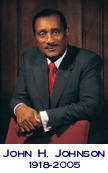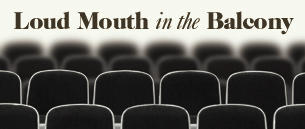
Gee, it must have been tedious and time-consuming to intimidate large numbers of people prior to the advent of the Internet. Now, with just a click of the mouse, you can threaten masses of people in a flash. If they don't forward your e-mail to x number of friends within x number of minutes, they'll be tossed in hell or left behind on Earth.
Oddly enough, these e-mails are always from people who, like me, use the "C" word to identify their religious affiliation. I'm confused: Wasn't it Jesus who allegedly said, "Judge not and ye shall not be judged. Condemn not and ye shall not be condemned"? We Christians rarely quote that scripture. Instead, there seems to be an affinity for a scripture that frankly doesn't even sound Christ-like: "If you are ashamed of me, I will be ashamed of you before my father."
Ow! That's my arm being twisted--something Jesus was not known to do. And there is no record that he ever instructed his followers to do it, either. Those who have ears will hear. That was his position, not "scream and berate folks until they convert!"
Let me be clear: I have no problem designating myself as a Christian. There was a time when being Christian defined how you behaved. Now, it merely reveals what you believe. For example:
As Christians, we believe that Jesus is the only human being conceived without human sperm. Of course, for centuries preceding Jesus' birth, ancient rulers were said to be the offspring of Greek gods and virgin maidens. But that was merely mythology.
Most of us Christians believe that Jesus was born in a barn in Bethlehem because, according to the gospel of Luke, there was no room in the inn for his mother, Mary, and earthly father, Joseph, who had traveled there from Galilee to pay their taxes.
We love that story, which is why we tend to ignore the birth narrative in the book of Matthew, which asserts that Mary and Joseph actually lived in Bethlehem; and Jesus was born at home. No manger. No mean innkeeper. No drama. Boring. Although, we have to admit that it's somewhat of a relief to consider that Joseph might not have forced the very pregnant Mary to ride on a donkey for hundreds of miles in the cold, so close to her delivery date.
In all fairness, we haven't totally ignored Matthew's home-birth version of Jesus' entry into this world. After all, he is considered to be the most talented gospel writer, which is one of the reasons his book precedes that of Mark who wrote the oldest book in the New Testament.
Both Matthew and Luke had great respect for Mark, and incorporated large portions of his book into their own. (That was before plagiarism was illegal, and before either of them knew their books would sandwich Mark's in a Holy Bible. Who wants to read the same passages three times?)
But Matthew and Luke felt that Mark's book had a fatal flaw: Mark didn't portray Jesus as the only begotten son of God. And he gave no evidence that Jesus was the Messiah. They remedied that problem.
Matthew was a Jew, writing for a Jewish audience. Any writer knows it's all about audience. You must connect. You must have a compelling story. If you want Jews to believe that Jesus is the Messiah, you must show that he fulfilled Jewish prophesy.
Prophesy said that the Messiah would be in the lineage of King David. Matthew and the Gentile Luke pegged Joseph as being in that lineage. Perfect, if Joseph had been Jesus' birth father. However, both of them claimed that he wasn't. (But we good Christians don't engage in gossip, so we won't deal with that.)
Prophesy also said that the Anointed One would be born in Bethlehem. Check! Matthew and Luke designated Bethlehem as Jesus' birthplace. They merely disagreed on how Mary and Joseph arrived there. And both writers forgot that if that much pageantry had surrounded Jesus' birth, he would have been known throughout the region as the Anointed One during his youth. In fact, throngs would have been eagerly awaiting his first words as a toddler. There would never have been a period when no one knew where he was. He could not have moved about anonymously. The ____ is in the details.
I digress. While we basically ignore Matthew's Jesus-was-born-in-his-family's-home scenario, we have gratituously plucked the dramatic image of the star in the East out of his story. What's a Christmas pageant without the star? We've simply decided not to acknowledge that it was lighting the route...to Mary and Joseph's place.
We've also snatched Matthew's three wise men drama. Personally, I'm not sure how they could be considered wise, if they encountered the diabolical autocrat, King Herod, and politely asked if he would help them locate the birthplace of the new king. Not exactly what wisdom would tell you to ask a despot.
The trio survived the encounter only because Herod wanted them to return and tell them the new king's location so he could kill him. Of course, he really didn't need their help. All of Bethlehem would have been buzzing about the Messiah's birth, the brilliant star hovering over the house, lighting up the entire town, and the entourage of visitors bearing gifts. Matthew doesn't explain why Herod didn't make a bee line to Mary and Joseph's place.
Curiously, the Apostle Paul, who almost singlehandedly spread Christianity throughout the region, didn't mention a word about an immaculate conception, a manger, a house, Bethlehem, a star, shepherds, or wise men in any of his writings. But then, Paul was simply writing letters to his followers since he couldn't personally lead the flock. He had no idea a council of religious leaders would later decide that his letters were gospel. But let me get back on track. I was talking about what we Christians believe:
No matter where Jesus was born, in a barn or a house, we believe that a Loving God sent him into this world, allowed him to have a healing and teaching ministry for three short years, and then subjected him to the most inhumane, painful, and degrading form of torture.
We believe it was absolutely the only way God would forgive mankind's sins. Jesus was the sacrificial lamb. He didn't rid the world of sin--and wasn't expected to. God reportedly had acknowledged in Genesis 8:22 that "the inclination of the human heart is evil from their youth." In the next breath God promised not to "strike all the living", as He did in the flood.
In that instance, God saved the only one he thought was good. In this instance, he brutally murdered the only one who was good--one who had healed rather than hurt others, one who promoted peace, love and forgiveness. And we Christians believe that God loved us evil ones so much that He tortured that one good one so that He would be able to forgive the rest of us.
Does that mean that Jesus' depiction of God as the unconditionally forgiving father in the Prodigal Son parable was misguided, as was his belief that everyone should automatically be forgiven 70 times 7?
Jesus never portrayed God as angry, violent, judgmental, or cruel. He called him "Papa", which in Aramaic means "Beloved". It's an endearment that applies to both men and women. In other languages, it means "Father", which is why today we Christians still believe that God is a supernatural man.
As devout Christians, we also believe that Jesus' human body walked out of the tomb after his crucifixion, and appeared in a contradictory variety of locations, depending upon which Gospel writer recounted those sightings. Of course, none of those writers knew Jesus or personally witnessed any of his physical appearances. He had died decades before they were born. So we can't be sure where he was seen; but it was somewhere, in the flesh. Of that, we're sure.
We also believe that Jesus now sits at the right hand of God, in a very distant place called Heaven, where he apparently has lost his affinity for peace, healing, and love. That must be it, because we Christians believe that he and God will return to Earth in a dramatic and violent scene full of blood and weapons and things. And they will judge us and inflict eternal and sadistic punishment upon us because we exercised the free will that God granted us, even though "He" knew that we had an "inclination to be evil."
What does it all mean? It means that I can choose to call myself a Christian, based solely on my belief in the details outlined in the Bible. Or, I can show everyone that I am a follower of Jesus because it will be evident to anyone who observes my works. They will see that I make every effort to:
- Love everyone as I love myself--unconditionally.
- Do to others only what I would want them to do to me.
- Forgive others' sins, as I would want mine forgiven.
- Be non-judgmental.
- Resolve problems without anger or violence.
- Be tolerant of those who hold different beliefs.
- Always be fair.
- Speak and act with wisdom.
- Consult God before making decisions.
- Speak only Truth.
- Respond to evil with faith rather than fear.
- Act as if the kingdom of Heaven is within me.
- Conduct myself with humility.
- Be sensitive and responsive to the needs of others.
Actions speak louder than words. Instead of being concerned about what I am called, or whether the Bible is the inerrant word of God, I will concern myself with what I am called to do: follow Jesus' teachings--and leave the drama behind.







